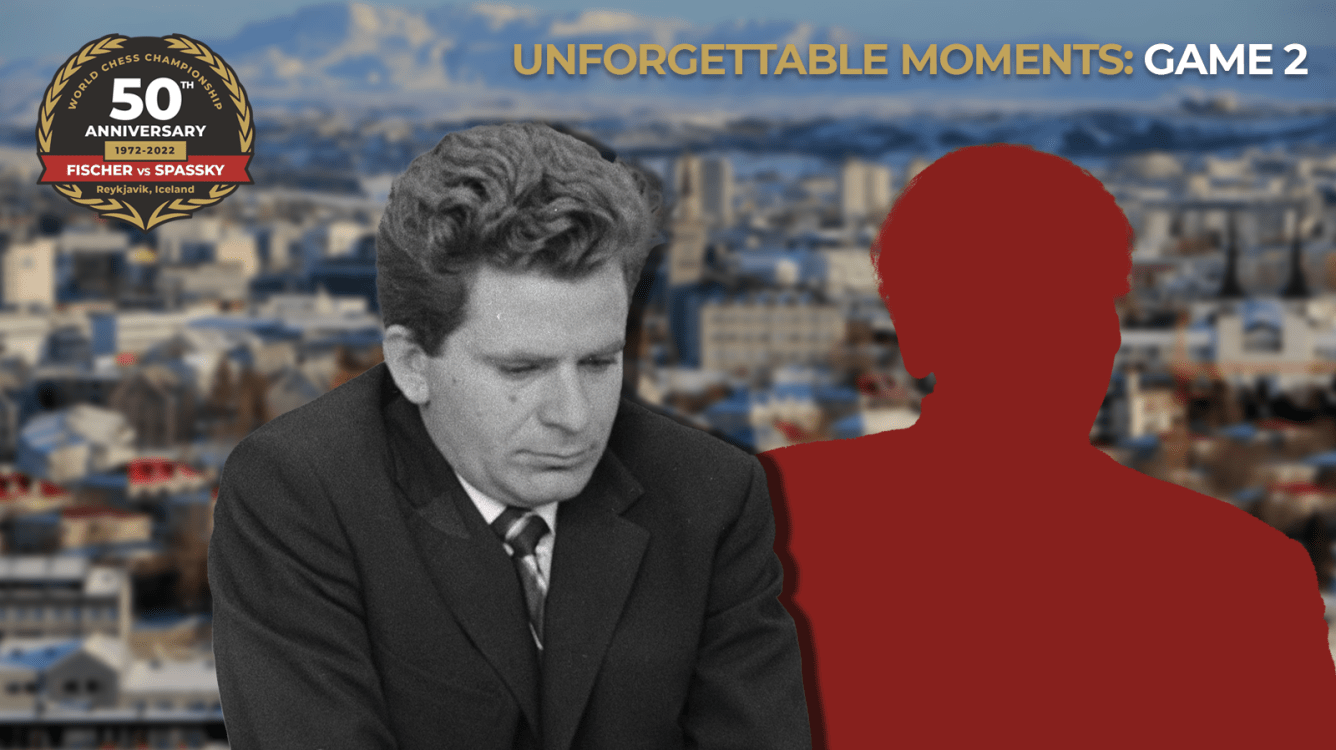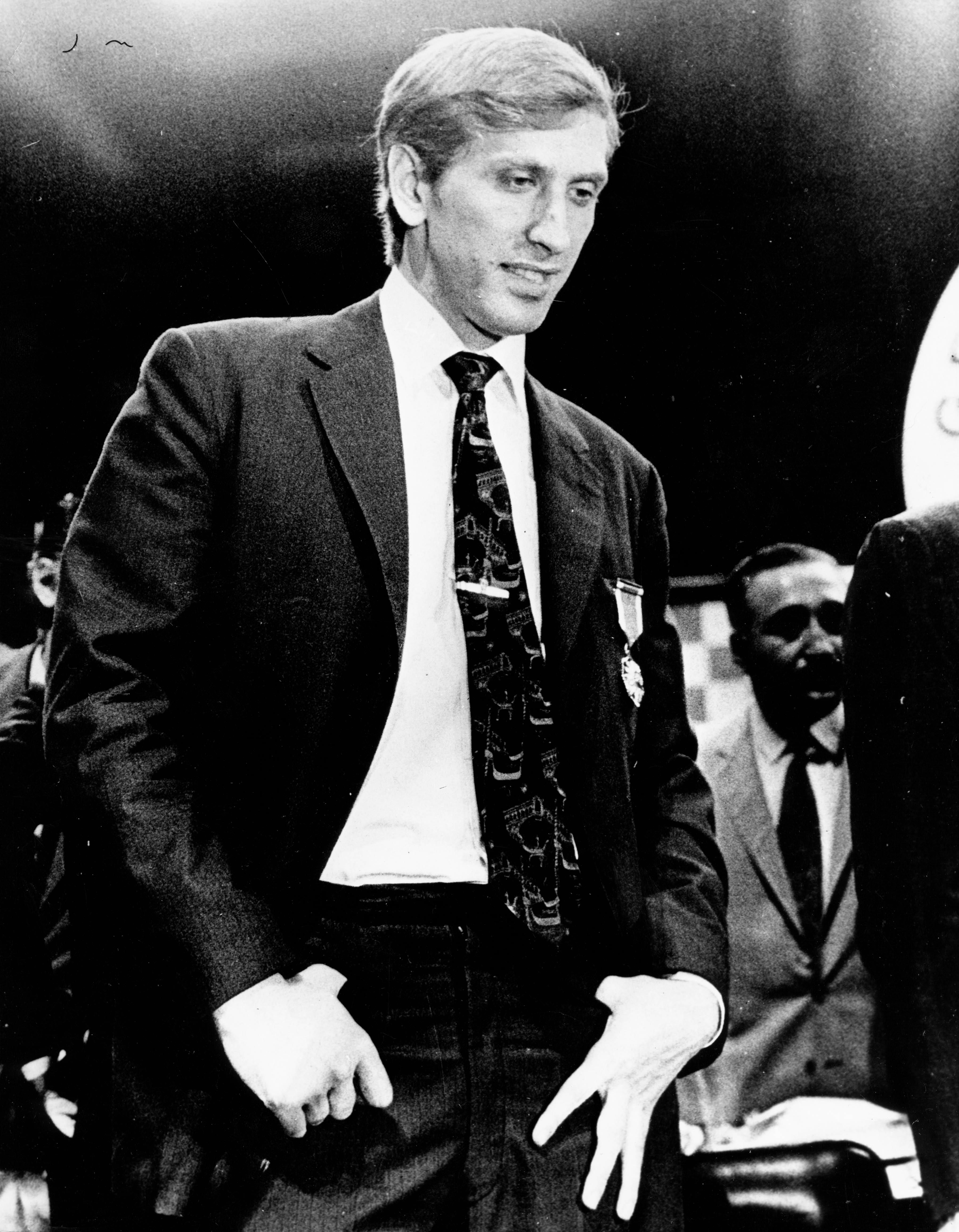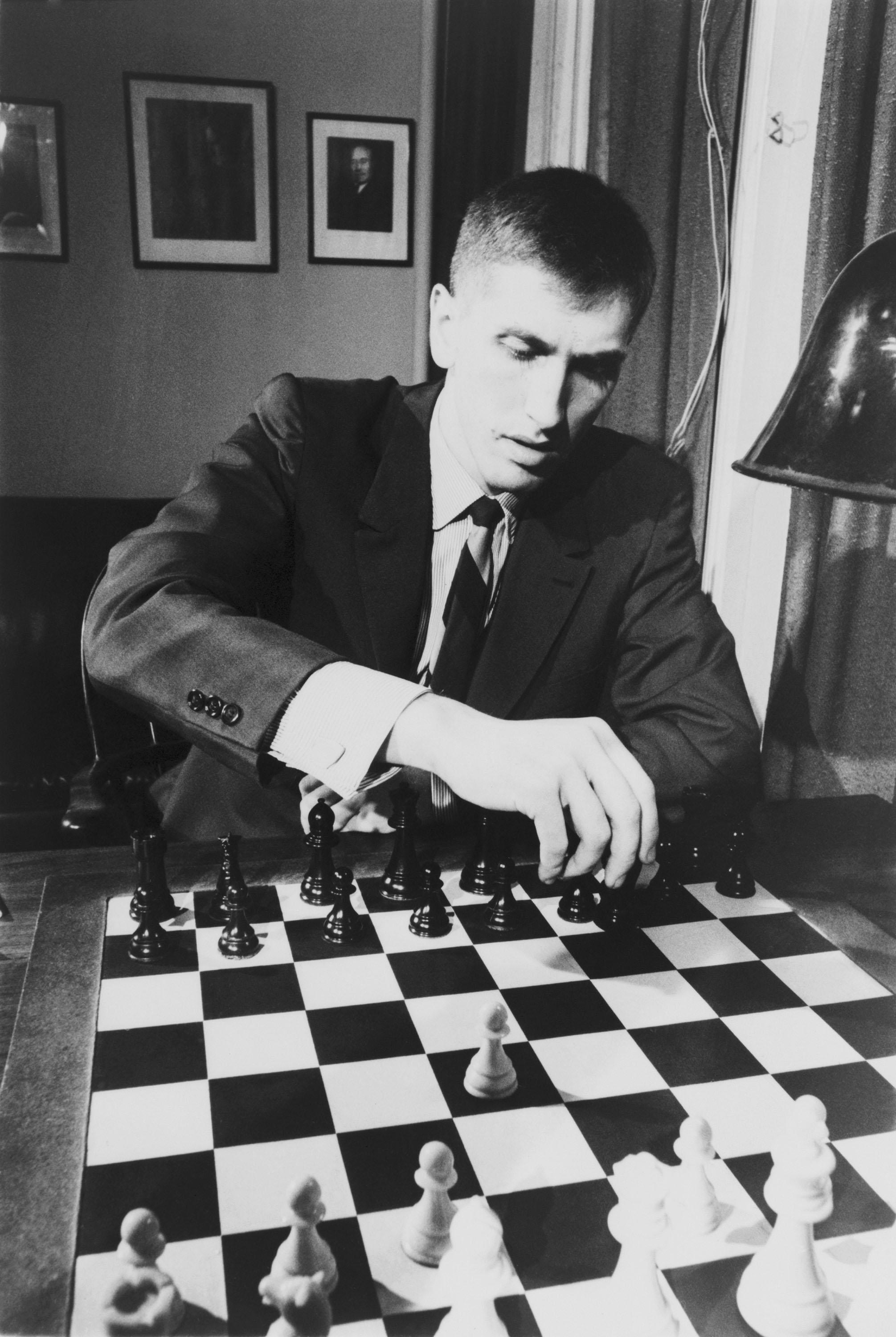
Bobby Fischer Forfeits Game 2
After GM Bobby Fischer's dramatic loss in round one of the 1972 World Chess Championship, the next game two days later was a major turning point in one of the most important matches in chess history. In fact, game two was never played—GM Boris Spassky won by forfeit after his opponent failed to arrive.
An archived New York Times article describes the tense situation: "Spassky sat before the chessboard for about five minutes, looking uncomfortable, and then left the stage. The audience of about 1,000—less than half the capacity of the dimly lighted hall—watched the two empty chairs for an hour, with a sort of mesmerized fascination. There was no talking."
Spassky returned to the stage after the hour elapsed, received a standing ovation as he was declared the winner, and whispered to the arbiter before leaving, "It is a great pity."
The score after this nongame was 2-0 for Spassky with a pretty bleak outlook on whether the match would continue.
Imagine if Fischer had decided not to play and ultimately took a flight back to the United States. This did almost happen. Spassky would have retained the world title, the USSR would have asserted its supremacy over the United States in chess during the Cold War as it continued a 24-year legacy of Soviet dominance, and perhaps the chess boom would never have occurred in the U.S. as it did in the '70s, at least until the next great American player.
Would Chess.com, a company based in the U.S., have been conceived as we know it?
Who would have dethroned Spassky? GM Anatoly Karpov? GM Garry Kasparov? GM Vladimir Kramnik? Would the world have to wait until GM Viswanathan Anand for a non-Russian/non-Soviet world champion? Of course, I too think I am exaggerating, but undoubtedly the Soviet reign in the realm of chess would have lasted longer if not for Fischer. Who knows how long?

Why didn't Fischer show up? From his perspective, he found the cameras to be a huge distraction and refused to play if cameras were in the playing hall—even if he couldn't see them. Knowing that they were there was distracting for the challenger. This problem, along with a whole host of other bizarre complaints (about the chairs, the lights, etc.), would plague the match in subsequent rounds as well.
Others, particularly on the Russian side, indicated that Fischer's strange behavior was intentional—done purposely to unsettle the Russian champion psychologically. In an interview with Spassky conducted by Yury Golyshak and Alexander Kruzhkov in 2016, the former world champion shared:
"But an athlete had to wake up in me, for whom victory is most important. I didn't do tricks. Unlike Fischer—who poured out statements on any occasion. Either he made claims to the Icelanders as organizers, then to FIDE President Max Euwe, then to the Soviet side. Birds stop singing in Reykjavik Bay—who's to blame? Spassky! Then it opened up for me—all this pressure was thought out."
In the same interview, Spassky mentions that GM William Lombardy, Fischer's only second, was behind the psychological warfare—that he planned to win "at any cost."

If this were the case, it would have been one of the greatest gambles imaginable. Starting the match with a minus-two score, as well as spotting Spassky the right to retain his title without playing the match (Euwe told Spassky he could leave and stay world champion, but the Russian refused), was quite a high price to pay. Further, Fischer had never beaten Spassky.
At the time, a Fischer recovery would have seemed close to impossible or at least extremely unlikely. During this crisis between games one and three, it wasn't even clear if Fischer would play.

How did Fischer decide to come around in the end? U.S. Secretary of State Henry Kissinger made a second phone call to Fischer. Spassky also agreed at the last minute to play the next game in a backstage room without cameras, again defying orders from his government to leave and retain the title. Fischer's lawyer attempted to wipe the forfeit off the scorebooks but was unsuccessful.
Thus game three would take place after all. Fischer would play with the black pieces against a world champion whom he'd never defeated. Down two points. Stay tuned for our next article in this series to read about how that game went on and off the board.

What do you think was the motivation for Fischer's forfeit in game two? Do you believe Spassky should have agreed to continue the match, or should he have gone back home with the world title? Let us know in the comments below and, as always, thanks for reading!
Previous 50th Anniversary Fischer-Spassky Content:






